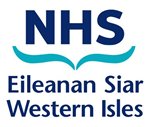 As soon as you find out you’re pregnant, make an appointment with your midwife.
As soon as you find out you’re pregnant, make an appointment with your midwife.
That’s the message NHS Western Isles is sending out to women across the Western Isles as part of a national drive to encourage the best start for pregnant women and their babies.
All pregnant women, even those who have got children already, are being encouraged to book into their local maternity services before 12 weeks to benefit from the full range of screening options available and have their individual health needs met. The first two trimesters following conception are critical, when the foetus is most vulnerable to damage caused by use of tobacco, drugs and alcohol, maternal stress and poor nutrition.
The first midwife appointment aims to ensure the best long-term care is provided for each woman and her baby. Women’s health needs can be different, so support may be given around things like eating well, exercise, dental care, smoking, drinking, money and housing.
New posters currently on display in GP surgeries, pharmacies and in local hospitals advise women to come and see a midwife as soon as they know they are pregnant. Supporting leaflets also provide information on what to do next after finding out you’re pregnant.
NHS Western Isles Senior Midwifery Manager Catherine Macdonald said: “We want to get the message out to women across the Western Isles that you can make your first midwife appointment as soon as you know you’re pregnant. Pregnancy tests are so accurate now that a positive result is enough to book you directly into maternity services – you don’t usually need to see a GP to confirm it.
“If you’re pregnant, seeing your midwife early is the best way to support you and your baby’s wellbeing. Just call the GP surgery and ask to make an appointment with the midwife. We are in all the GP practices, except South Lochs and Uig, but the receptionists in these areas will know how to access the midwives.”
One local mum commented: “Even if it’s a subsequent pregnancy it’s always reassuring to speak to the midwife and get more information from her, as each pregnancy is different and the pathways of care may be different for each one.”
A ‘dad to be’ also commented that he found it reassuring that his partner was seen by the midwife at an early stage (5 weeks) as there is quite a gap from a ‘mum to be’ thinking/ knowing she is pregnant and the date arranged for the first scan.
He added: “All the information given by the midwife is very helpful as are all the leaflets and booklets.”
Gillian Smith, Director at Royal College of Midwives Scotland said: “Women will meet a number of health professionals on their maternity journey but the midwife is without question the expert on what to expect in pregnancy. That’s why it’s important that women meet their midwife as early as possible, so that their individual support plan is put in place and a strong relationship can be built up. We know that although all women need a midwife, some will also need an obstetrician, GP or other service during pregnancy, so the earlier we can get each woman’s plan under way the better.”
While women are being offered the option of a midwife as first professional contact, the choice of seeing a GP at any point in the woman’s pregnancy remains available.
Minister for Public Health, Michael Matheson, said: “Getting into maternity services early will help to ensure that all children in Scotland get the best possible start in life, even before they are born. Maternity care plays a vital role in providing women, their partners and their babies with the care and support they need at this important time. We know that those women at highest risk of poor pregnancy outcomes are less likely to book for antenatal care early. Improving rates of early access to antenatal care for all women will strengthen the contribution the NHS makes to improving long-term health.”
